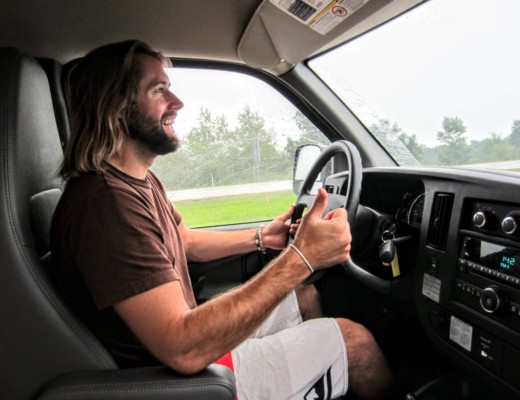Literally. I broke my toilet. I had been in Africa for two days and already started tearing things apart.
This shattering of the ceramic toilet-top perfectly symbolizes my adjustment process to the city of Kigali: The top hides shit beneath its surface, but when ill-treated winds up in pieces on the floor. This is also my life.
If someone asked me to sum up my first week in Kigali in three words, I could do so easily:
- Starving.
- Destitute.
- Helpless.
It wasn’t the city’s fault. It wasn’t mine either. This situation evolved from a sort of cyclical effect that whirled within the crossing-over process of my American culture into that of Rwanda’s. That cyclical effect went something like this:
I had limited access to money due to:
- Not being able to find an ATM (length of search: 1 day)
- Not finding an ATM that actually worked (length of search: 3 days)
- Not having enough money while waiting for my government loan reimbursement (length of search: 7 days)…
I could not buy food or water because I could not access money to buy the food or water with…
Once I ran out of the cash I finally got access to, I could not get back to the ATM because I did not have enough cash to pay the taxi-moto driver 700 RWF ($1.14) to drive me the ATM…
I could not call or email anyone for help because I did not have access to Internet or a phone…
I did not have access to Internet or a phone because I did not have enough money to buy Internet or airtime for my phone…
And so the cycle continued for about seven days.
The situation was actually quite simple: I was in Africa trying to reach America, but all lines had been permanently disconnected.
It didn’t take long for the blunt realization to hit me. Almost everything we use to access anything in the United States requires electronics or Internet. I could not even drink a clean glass of water, because my money was trapped on the electronic piece of plastic in my wallet.
Of course, I tried to prepare for this transition. I knew nowhere in Kigali accepts debit or credit cards. I knew the city’s ATMs would only usually work. I tried exchanging money ahead of time, but failed to consider that exchanging two of the smallest world currencies – Danish Krona into Rwandan Francs – would not be a popular option between Copenhagen and Kigali.
I adapt easily to new cultures and situations. New experiences typically excite rather than overwhelm me. I came to Rwanda looking for a new opportunity to grow – and grow I already have. This first week in Kigali pushed my personal threshold to a whole new level. It took me three days to eat one full meal and seven to eat two meals in one day. I felt myself pinned against corners – a place I don’t often find myself stuck in – with one option: fight my way out.
It was an enormous challenge that taught me enormous things about my character, strength and will to carry on despite my continuous urge to hop a plane home with a big chocolate brownie and cry.
When I finally accessed enough money to buy Internet three days after arrival, my stubborn will to maintain independence also dissolved. I used my 15 minutes of available computer battery life (none of the coffee shop outlets worked) and emailed my parents for help. Actually, it was more of an SOS distress call. My ship was drowning, I explained. And, I desperately needed a loan before I went down with it.
I have thanked God every day since for parents who love me enough to rescue my sinking ship.
During my second day in Kigali, I used my toilet and it wouldn’t flush. Because I thought myself capable of a task like fixing a toilet, I removed the upper lid and allowed it to slip from my hands onto the tile floor.
This is how I broke my toilet. But, when I saw those poor, broken pieces scattered about the bathroom floor, I found a broom and swept them up again.



No Comments